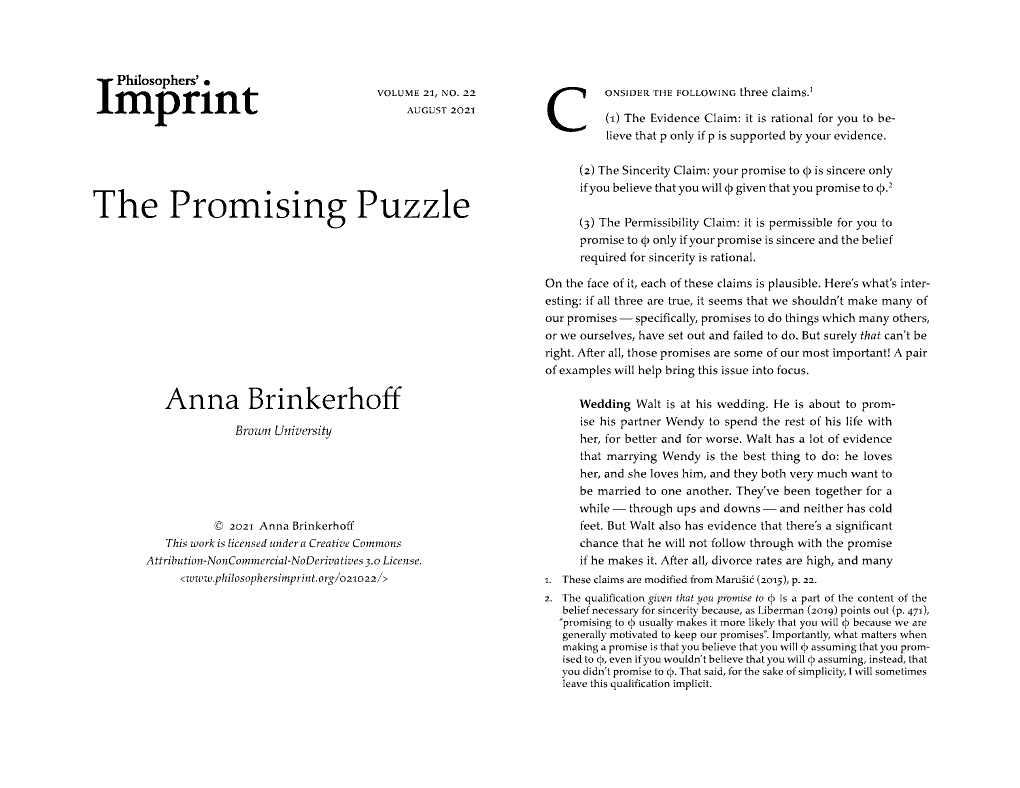The Promising Puzzle
Skip other details (including permanent urls, DOI, citation information): This work is licensed under a Creative Commons Attribution-NonCommercial-NoDerivatives 4.0 International License. Please contact [email protected] to use this work in a way not covered by the license.
For more information, read Michigan Publishing's access and usage policy.
Abstract
Here’s a plausible thought: we should make a promise only if we rationally believe that we will follow through. But if that’s right, and if it’s rational to believe only what our evidence supports, then it seems that we shouldn’t make promises to do things our evidence suggests that there’s a significant chance we don’t do – things that many others, or we ourselves, have set out and failed to do. Think: promises to stay faithful or to be on time or to quit smoking. But surely that can’t be right! After all, these are some of our most important promises. This leaves us with a puzzle: either accept that sometimes it’s ok to promise against the evidence or accept that we shouldn’t be making many of our most important promises. This paper develops a response to this puzzle. Promising against the evidence turns out to be morally problematic across the board. But, upon closer inspection, it seems our evidence often does support the belief that we will do something that many others, or we ourselves, have set out and failed to do. When it does, promising is permissible. When it doesn’t, promising is not the right thing to do.



